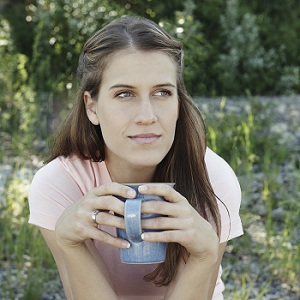Could That Cup of Coffee Stop Skin Cancer?
June 2015
Could That Cup of Coffee Stop Skin Cancer?
An overflowing cup of evidence suggests drinking coffee may help prevent some cancers. Liver, breast, and endometrium—to name a few. One recent study points to the beverage’s possible protective effect against melanoma.
The coffee and cancer connection
Melanoma isn’t as common as other types of skin cancer. But it can be the most serious. If not found early, it can spread beyond the skin to other parts of the body. When it does, it can be deadly.
To see if drinking coffee may protect against this disease, researchers analyzed the results of a past survey on diet and lifestyle. They focused on the coffee drinking habits of more than 447,000 older adults ages 50 to 71. They then looked at whether these people developed melanoma over a 10-year period.
The result? Nearly all study participants said they drank some coffee. More than half enjoyed at least 2 cups a day. But those who consumed the most were 20% less likely to develop melanoma. These people drank 4 or more cups a day.
Why might coffee curb cancer? The beverage is filled with antioxidants. These substances may help fend off cell damage—a precursor to diseases such as cancer. Coffee also serves up a healthy dose of the B vitamin riboflavin. Plus it contains a small amount of other nutrients, like vitamin E and potassium. But beware of coffee concoctions that contain too much sugar and fat.
Better ways to prevent melanoma
Despite the promising results on coffee and cancer, experts still caution that more research is needed. Bottom line: You shouldn’t choose to drink coffee to keep away melanoma and other skin cancers. There are more proven methods.
First, know the risk factors for the disease. People at high risk for melanoma include those who have fair skin, many moles, and past cases of blistering sunburn. Too much exposure to sunlight—whether natural or artificial—also factors in. So, too, does a family history of the disease.
Second, watch your skin for changes. A regular self-skin exam can help you spot melanoma early. Look closely at birthmarks and moles. Talk with your doctor about moles that change size, shape, or color.
You may also be able to prevent melanoma and other skin cancers with the following:
Apply sunscreen every day. It can protect your skin from ultraviolet (UV) light. Choose brands that are full-spectrum. They work against both UVA and UVB rays.
Limit your time in the sun. When outdoors, seek shade. Also wear a hat and sunglasses. UV light can hurt your eyes, too.
Stay away from tanning beds. These sources of artificial sunlight can deliver high doses of damaging UV rays to your skin. They are a serious risk factor for melanoma.
Read more about melanoma.
Online resources
Updated:
March 21, 2017
Sources:
Coffee Consumption and Risk of Cancers: A Meta-Analysis of Cohort Studies. X. Yu, et al. BMC Cancer. 2011;11(96):1-11., Coffee Drinking and Cutaneous Melanoma Risk in the NIH-AARP Diet and Health Study. E. Loftfield, et al. Journal of the National Cancer Institute. 2015;107(2):1-9., Investigation of Dietary Factors and Endometrial Cancer Risk Using a Nutrient-Wide Association Study Approach in the EPIC and Nurses’ Health Study (NHS) and NHSII. M. Merritt, et al. Cancer Epidemiology, Biomarkers & Prevention. 2015;24(2):466-71.
Reviewed By:
Turley, Ray, BSN, MSN
